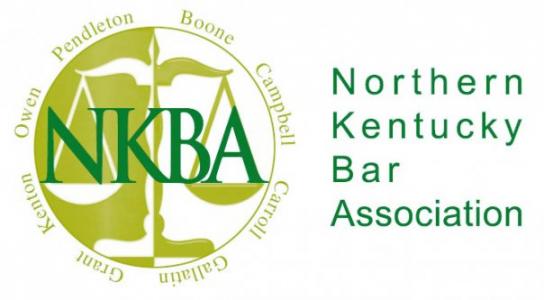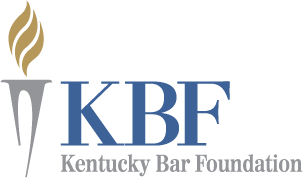Blog
Arnold Taylor - Attorney Profile
I cannot recall the first time I met Arnold Taylor. I know it was sometime when I was nine-years-old. My first recollection of Arnold was grocery shopping with him while my mother was ill. I think they were still dating at the time and he was trying to show her that he could be a gentleman, and take her nine-year-old son grocery shopping. You know, “be the man.” He was busy going down a list of things my mother had written down, and we had reached an important product that I needed: peanut butter. He picked up a jar of what I believe was some kind of hoity toity gourmet peanut butter, and not regular old Jiff, as was common in our household. I tried to correct him, but he insisted it was a superior product. I disagreed, made my argument, but he bought the peanut butter anyway, confident he was right. He was not and that peanut butter never was eaten, at least by me. But that is the kind of guy he is: he will buy you the wrong kind of peanut butter. His heart, however, was in the right place. He would soon marry my mother in the home he built for us in Edgewood, Kentucky, and where they both still live to this day.
Arnold Starr Taylor was born in Corbin, Kentucky, in October of 1940 to Charles and Thelma Taylor. Arnold would soon relocate to Covington, Kentucky. His father managed a dry cleaners, and his mother was a bookkeeper for Rose Brothers Construction.
Arnold graduated from Holmes High School in 1958. Upon graduation, he enrolled in the University of Kentucky, Northern Center, and later transferred to the main campus at Lexington. While working on his undergraduate studies, he worked at the U.S. Public Health Service Hospital.
In the fall of 1962, he was admitted as a first year law student at the University of Kentucky, College of Law. He worked as a resident advisor while attending law school and was admitted to the Kentucky Bar in September of 1965.
During the Summer of 1964 and 1965, he clerked at the firm of O’Hara and Ruberg, located at the Gateway Motel Building at Second and Scott Streets. John J. O’Hara and Robert E. Ruberg founded that firm in 1963, and Arnold would find himself employed there upon passing the bar. At some point in the late 1970s, ‘Taylor’ was added to the firm’s name.
He did serve briefly as an Assistant Commonwealth’s Attorney while Jay O’Hara held that office. He also ran for Circuit Judge at some point in 1975; he was unsuccessful, but does not regret losing.
He did not focus his practice on any particular field in his early years as an attorney, but he would later find his niche as a litigator. Arnold has been involved in quite a few defense cases, including a few large aviation defense cases, products liability, and countless insurance defense cases. Gary Sergent, one of his current partners, remembered one case in particular that he defended with Arnold. During the trial, it became apparent that Gary’s and Arnold’s witnesses were not hitting the mark. They both did what they could, objecting, re-directing, sending smoke signals, all to no avail. Arnold looked at Gary, scribbled on a piece of paper, and rolled his eyes. The note read: “God this is awful.” Not really a funny story, but apparently, most funny stories about Arnold are not fit for publication.
I recall one story about Arnold. During my nepotistic days as a law clerk at his firm, I came into his office to explain the lateness of my memorandum on a declaratory action on an insurance policy. I had spent hours at Chase’s law library and had to cite to several esoteric secondary sources. I explained to him (wanting an extension, of course) that I needed time to get the correct Blue Book citations. He quipped, in short order, that the Blue Book was not a necessary component of the memorandum, and that the Blue Book was of no consequence, to him or to any sitting judges who may read the brief that he would soon be drafting. However, he said this in four words or less, and used one word that the Lex Loci Committee forbids me from using.
My mother met Arnold in 1984 at the Hyde Park United Methodist Church. I asked her what she saw in him, and she replied, “Money and a bad haircut.” (Kidding, she never said that, and asked me to take it out of this article, but I refused.) Today, she cuts his hair. I thought he looked like Walter Mondale with his haircut, or, like Mikhail Gorbachev without the borscht spot on his forehead. In my youth, I hypothesized that he may indeed be a Russian sleeper spy, since he obviously supported left leaning Democrats and liberals, spoke Russian, and visited Moscow sometime in the 1960s.
Outside of being a lawyer, and part-time KGB agent, he is a very boring person. He bakes breads and pies. Seriously, he makes some good pies. He dotes on his mixed beagle/basset dog named Sophie, feeding her table scraps and the occasional dollop of chardonnay. I asked my mother for funny stories about Arnold, and she said she cannot think of any because he is just not a funny guy. She knows he likes to dance; he drinks too much when he is in Paris; and he reads long, boring, intellectual books.
Peggi, his secretary, alludes to a few April Fools jokes he has pulled in the past, but only one fit for publication: He sent out a memo to the firm and staff that since there was new carpet, please only walk on the edge of the carpet in the darker, border portion of the carpet. Apparently, one staff member thought he was serious. That poor soul walked on the edge of the carpet for a few hours before Arnold realized that someone actually took the bait. He kindly pointed out that it only pertained to the left side of the carpet, and not the right.
And he wrote some books, too. Three to be exact: “Rose a Woman of Color,” “Suing for Freedom in Kentucky,” and “A Compilation of All Named Slaves in Kenton County Kentucky”. He has always had a passion for supporting those that have not been given all the chances in life that your average white male may have, and it is evident in those publications and his actions in life. Mom calls him a feminist, but he has also spent a considerable amount of energy in the Rotary Club, in a program that enables under-privileged children to attend student-exchange programs by providing financial assistance. It costs money to send a child to a foreign country, and I am sure many of us think, “well there must be some non-profit that helps them do that”. This is that program.
Arnold has always been a positive influence mentoring young attorneys as well. I think many of the former associates that have served under him, if not all, can agree that Arnold Taylor was the guy at the firm you go to for advice or support. His door, while usually closed, was always open when the green-horn associates came knocking.
A.T., as some of us call him, has other resume fillers, that show his long career as a Kentucky attorney: he was on the very first Continuing Legal Education Commission; he is Chairman of the Judicial Ethics Committee; he served for three years on the Council on Post-Secondary Education; he has been a member of the Covington Rotary Club since 1978; and he is a member of the Kenton County Historical Society. Oh yeah, and he was in that Sixth Circuit case that adopted the “last served rule” for removal to federal court, which is now in the Federal Rules of Civil Procedure. I asked him for notable cases, and this is the one that excited him the most. Come on A.T., that one is pretty geeky and boring.
And now I come to the end where I get to expound on that weird story in the beginning about peanut butter. Arnold took a little kid grocery shopping, son to a single mother, whom he barely knew, and spent several hours buying food for the kid to eat. He even spent a few dollars more to get him some better peanut butter, using his own money, and asked for nothing in return.
Author: Benjamin T. D. “Tom” Pugh - partner at Pugh and Roach, Attorneys at Law, PLLC, and the stepson of Arnold Taylor.
Originally published for the June 2016 edition of the Northern Kentucky Bar Association Lex Loci.







